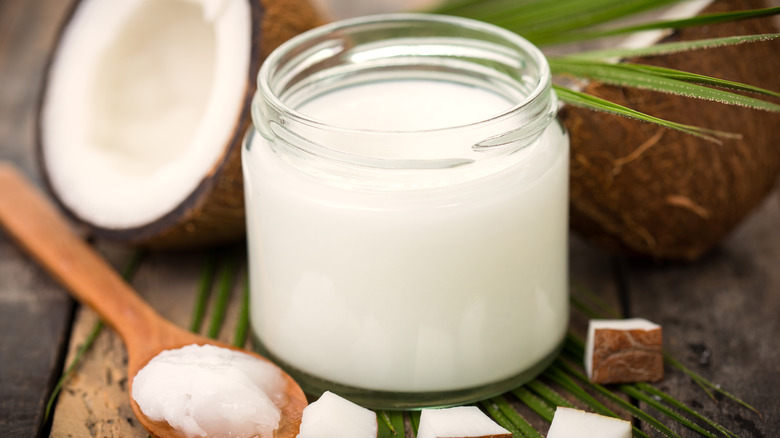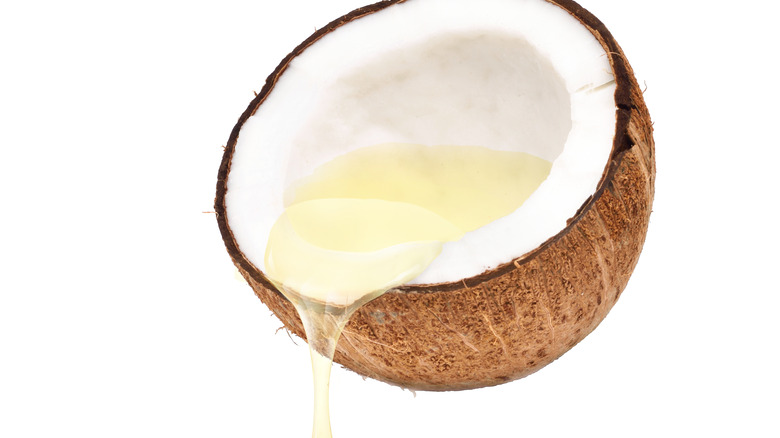Here's What Coconut Oil Can And Can't Do For You
If you're looking for a miracle food that can serve countless functions inside the kitchen and out, you're probably looking for coconut oil. This oil can be used for innumerable things from life-changing cooking preparations to acting as shaving cream. Its properties allow it to be used in hair, in food, in cleaning, and more, but what are its limitations? It's time to find out!
To understand coconut oil, we first must understand the two types of coconut oil: refined and unrefined. According to Healthline, the main difference lies in their production methods, with the different methods impacting their flavors and even their smoke points. Unrefined coconut oil, which is often referred to in recipes as virgin coconut oil, has not been processed past its initial extraction from coconut meat. Meanwhile, refined coconut oil experienced further, well, refinement to "make it better suited for cooking," per Healthline.
Refined coconut oil, because of the extra work that's done to it, no longer tastes like coconut, and it smokes at a much higher temperature than its unrefined counterpart. These differences may not seem crucial, but you need to utilize the right coconut oil for the right job. For example, refined coconut oil is typically preferred in cooking and baking while unrefined coconut oil is preferred for hair care.
The dos and don'ts of using coconut oil are more involved than you may think
Coconut oil is a powerful thing, but it can't do everything, even if we want it to. The list of things it can do is long, though. According to My Thirty Spot, coconut oil is excellent for oil pulling (a mouth and teeth care practice), hair care, and, of course, baking and cooking, but it might be less effective in beauty routines. My Thirty Spot explained that coconut oil is known to cause skin breakouts, so using it as a moisturizer might lead to less than desirable results. They also recommended not using it as sunscreen because it "only blocks about 20% of ultraviolet rays." Yikes!
Moreover, Into the Gloss explained that coconut oil shouldn't be used as lube, a hair mask, or a "cure" for eczema. However, coconut oil is suited for helping with skin dryness and irritation. Using it on your body is overall okay — the main issue comes when you apply it to your face or try to use it as a cure for skin conditions when medicated products are needed.
When baking, you can easily use coconut oil as a butter substitute in many recipes, including pie crusts, because it's solid at room temperature (via 25Magazine). When baking, you can use either refined or unrefined coconut oil depending on if you want coconut flavor to come through. Unrefined will offer this flavor, while refined won't. Therefore, you don't want to use unrefined coconut oil in savory cooking.

